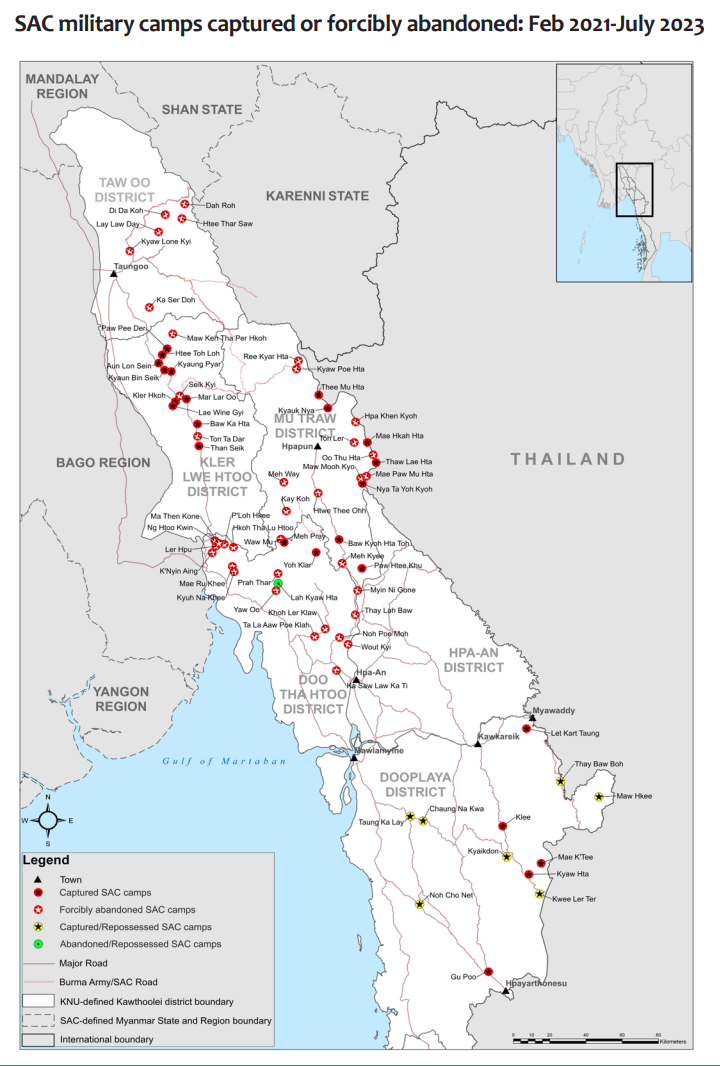The junta lost 62 military camps in southeastern Myanmar as a result of offensives by the Karen National Liberation Army (KNLA) and its allies between February 2021 and July 2023, the Karen Peace Support Network (KSPN) said in a recent report.
The junta’s ability to control southeastern Myanmar has significantly diminished both militarily and in terms of governance, according to the report “A Shifting Power Balance: Junta Control Shrinks in Southeast Burma” released by the KSPN on September 26.
Twenty-four military camps were captured and 38 were forcibly abandoned from February 2021 to July 2023 by the KNLA—the armed wing of the Karen National Union (KNU)—and its allies, the report said, adding that the expansion of territory under their control now directly threatens the regime’s central transport artery between Yangon and Naypyitaw.

The regime has also lost control of 370 schools, which are now governed by the KNU’s education department, according to the KSPN.
As the KNLA and its allies continue to expand the territory they control, the junta has escalated its artillery and air attacks on local communities, it said.
The KSPN said that from February 2021 to July 2023 there were 417 air strikes on targets in territory controlled by the KNLA and its allies and that they killed 41 people and injured 145 more. There were also 1,178 artillery attacks, which killed 88 people and injured 342 more people in the same period, it said.
The report said 19 schools, 15 churches, 10 monasteries and six clinics were destroyed by the regime’s artillery attacks and airstrikes.
Escalating artillery and air attacks have failed to reverse the junta’s loss of territory, but they have increased the number of internally displaced persons (IDPs) in Karen State to at least 637,414, an increase of 20 percent since February this year, the KPSN said.
The KPSN is urgently appealing for US$43 million to provide emergency rice for IDPs.
The KSPN is an umbrella organization of 30 civil society groups that has facilitated humanitarian support for conflict-affected Karen communities, IDPs, and refugees for decades.
It also works to empower local Karen communities, document human rights issues, and facilitate advocacy for a sustainable and equitable peace in ethnic Karen areas.

















